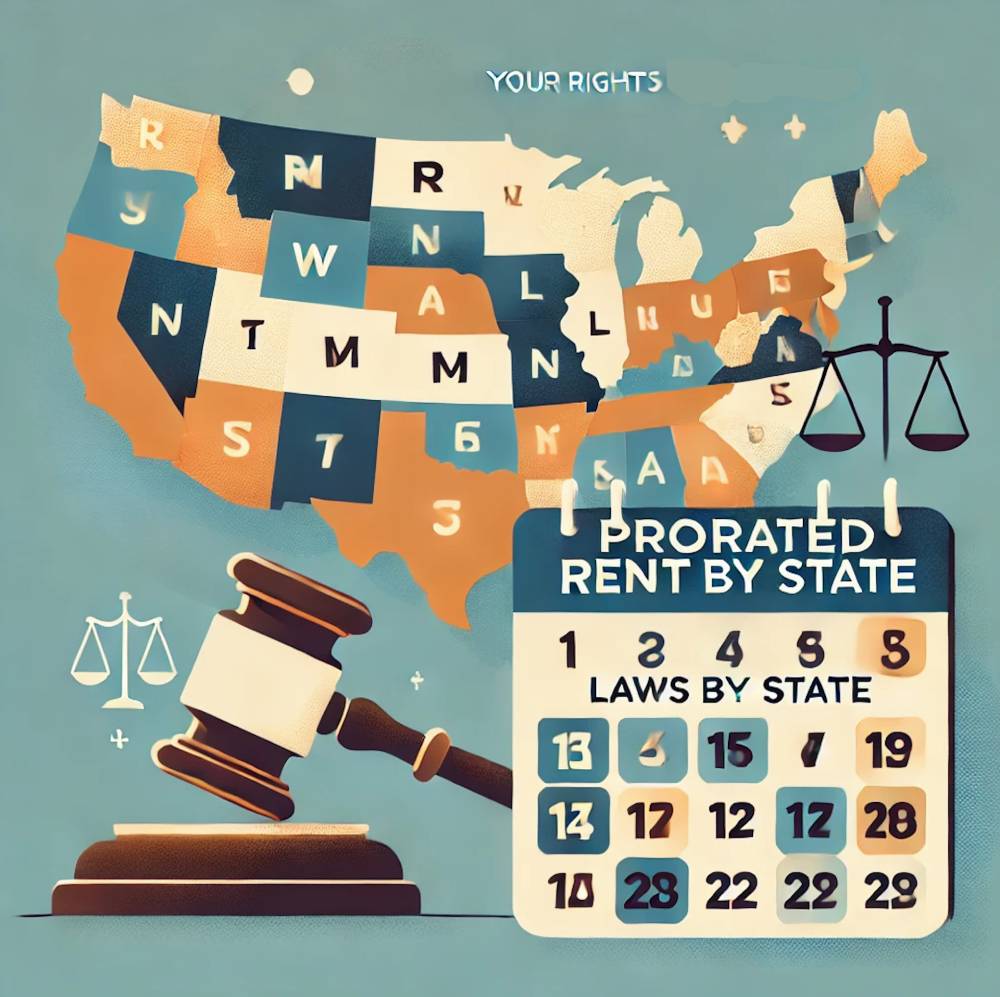Prorated Rent Laws by State: Your Rights as a Tenant
<< Back to Prorate My Rent

Understanding your rights regarding prorated rent can save you hundreds of dollars and prevent disputes with your landlord. While federal law doesn't specifically address rent proration, many states have their own regulations and precedents. Let's explore what you need to know about prorated rent laws across the United States.
General Legal Framework
Key Point: While specific prorated rent laws vary by state, they're generally governed by:
- State landlord-tenant laws
- Local rental ordinances
- Common law principles
- Lease agreement terms
Major Regional Differences
Northeast Region
New York
New York has some of the most tenant-friendly laws regarding rent proration:
- Landlords must prorate rent for NYC rent-stabilized apartments
- Written notice required for proration methods
- Security deposits must be returned within 14 days
Massachusetts
Massachusetts law requires:
- Clear documentation of proration calculations
- Prorated rent for lease terminations with proper notice
- Written agreements for any proration arrangements
West Coast States
California
California's tenant-friendly laws include:
- Required rent proration for partial month occupancy in rent-controlled units
- Strict documentation requirements
- Specific calculation methods must be disclosed in lease
Midwest Region
Illinois
Chicago and other Illinois cities have specific requirements:
- Mandatory rent proration for mid-month move-outs with notice
- Required disclosure of calculation methods
- Specific rules for security deposit proration
Your Rights as a Tenant
Universal Tenant Rights
Regardless of state, tenants generally have these basic rights:
- Right to request rent proration
- Right to know the calculation method
- Right to dispute incorrect calculations
- Right to written documentation
State-Specific Rights
Additional rights vary by state but may include:
- Mandatory rent proration in certain situations
- Specific calculation methods
- Required notice periods
- Dispute resolution procedures
Common Legal Scenarios
Mid-Month Move-Ins
Your rights typically include:
- Clear disclosure of proration method
- Written confirmation of move-in date
- Detailed breakdown of prorated amount
Early Lease Termination
State laws often address:
- Required notice periods
- Acceptable reasons for early termination
- Proration requirements for final month
Enforcement and Disputes
Legal Remedies
If your rights are violated, you may have access to:
- Small claims court
- Rental housing tribunals
- State consumer protection offices
- Legal aid services
Documentation Requirements
Always maintain:
- Written communications with landlord
- Copies of lease agreements
- Proof of payments
- Calculation worksheets
Key Takeaway:
Always get proration agreements in writing, regardless of state laws. This protects both tenants and landlords and prevents future disputes.
State-by-State Quick Reference
States with Strong Tenant Protections
- California
- New York
- New Jersey
- Massachusetts
- Illinois
States with Moderate Protections
- Washington
- Oregon
- Colorado
- Minnesota
- Maryland
Frequently Asked Questions
Can a landlord refuse to prorate rent?
In most states, landlords can refuse unless required by local laws or the lease agreement. However, some jurisdictions mandate proration in specific situations.
What if my state has no specific proration laws?
In states without specific laws, proration rights depend on your lease agreement and local ordinances. Always get proration terms in writing.
Do rent control laws affect proration rights?
Yes, rent-controlled units often have additional protections and specific requirements for rent proration.
How do I dispute an incorrect proration calculation?
Start by discussing the issue with your landlord, document everything in writing, and seek legal assistance if needed. Many states offer mediation services.
Taking Action: Steps to Protect Your Rights
- Research your state's specific laws
- Review your lease agreement carefully
- Document all communications
- Seek legal advice when needed
- Join tenant advocacy groups
Conclusion
Understanding your state's prorated rent laws is crucial for protecting your rights as a tenant. While laws vary significantly by state, knowing the basics and keeping good documentation will help you handle any proration situations effectively. Remember to always get agreements in writing and don't hesitate to seek legal assistance if needed.
Need help calculating your prorated rent? Try our free calculator above to ensure accurate calculations based on your state's requirements!
